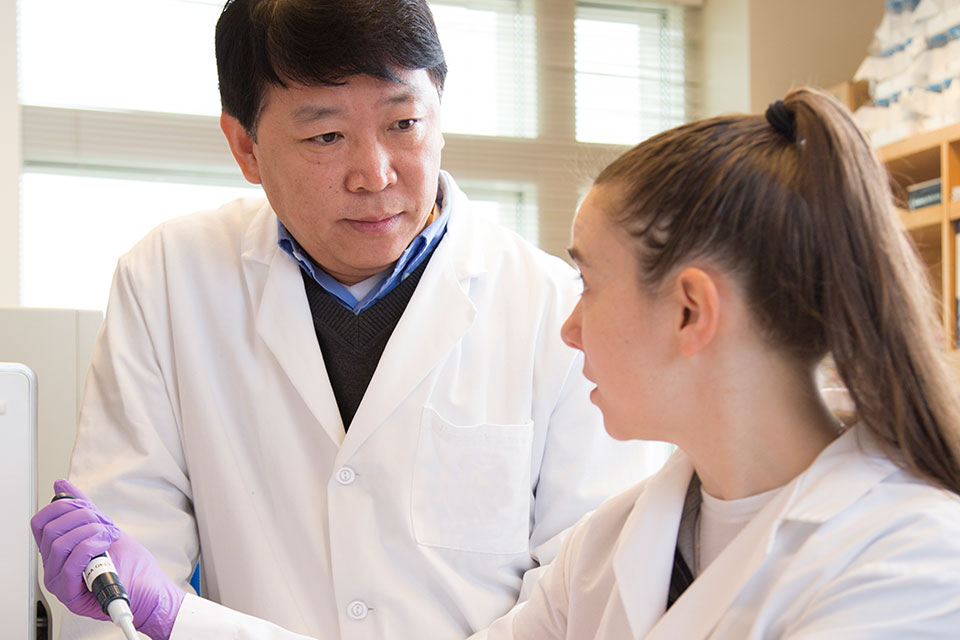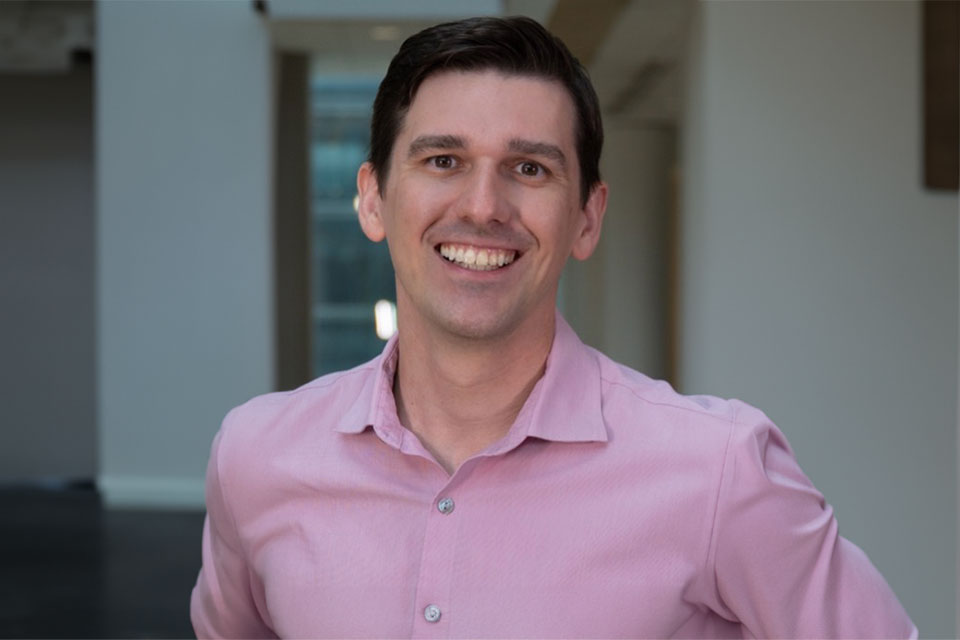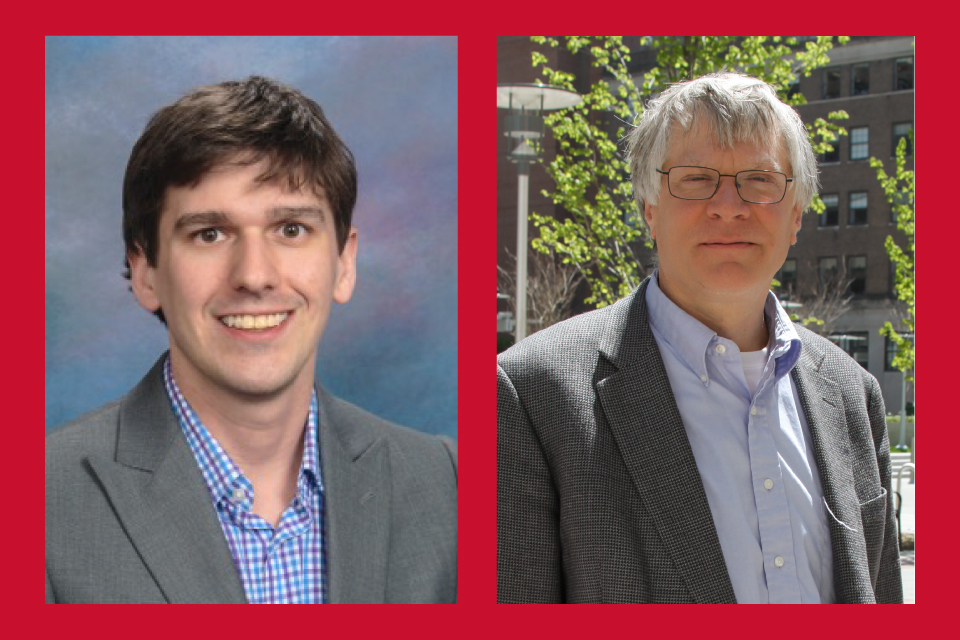PSC Researcher Named One of Five Finalists in National Toxicity Challenge
Dr. Hongbing Wang receives $100,000 from the National Toxicology Program to help support his work to develop a new cell culture model for use in high-throughput screening assays.

By Malissa Carroll
January 26, 2018
Hongbing Wang, PhD, professor and program chair for Experimental and Translational Therapeutics in the Department of Pharmaceutical Sciences (PSC) at the University of Maryland School of Pharmacy, has been named one of five finalists in the national Transform Toxicity Testing Challenge: Innovating for Metabolism. Wang will receive $100,000 from the National Toxicology Program – a joint program of the National Institute of Environmental Health Sciences, the National Center for Advancing Translational Sciences, and the U.S. Environmental Protection Agency – to support his continued work to develop a new cell culture model that allows existing high-throughput screening assays to produce physiologically relevant metabolites, accelerating the drug discovery process and decreasing researchers’ reliance on animal studies, which are often costly and time consuming.
“Our department was thrilled to learn that Dr. Wang would be advancing to the next stage of the national Transform Toxicity Testing Challenge,” says Paul Shapiro, PhD, professor and chair of PSC. “By applying his existing expertise in the field of drug metabolism to this national challenge, which will help improve drug safety for patients around the world, Dr. Wang has demonstrated the true spirit of a pharmapreneur. We applaud his innovation and leadership in this endeavor, and wish his team the best as they enter into the challenge’s final stage.”
To help evaluate the risk of adverse health effects associated with new drugs, researchers have traditionally relied on animal studies. However, because these studies are often costly and require a significant amount of time to complete, many drugs have yet to undergo a full safety evaluation. To help address this issue, regulatory agencies have a developed a range of high speed, automated screening technologies – known as high-throughput screening assays – that rely on immortalized cells (mutated cells that are able to undergo division for a prolonged period of time) to measure the toxicity of those compounds. Unfortunately, these assays are not able to test for metabolites, which are altered forms of chemicals produced as the body breaks down the original compound.
In some cases, the metabolites produced by a drug can be more toxic than the drug itself, such as in the common pain reliever acetaminophen, which – when taken by patients in doses that exceed the recommended amount – produces metabolites known to be toxic to the liver.
To help existing high-throughput screening assays test for drug metabolism, Wang and his team developed a new cell culture model that uses human liver cells known as human primary hepatocytes (HPH) and an inverted co-culture system that allows assays to run in an environment that produces physiologically relevant metabolites.
“Lack of metabolic competence is a major limitation of the current high-throughput screening assays used in the evaluation of drug safety,” says Wang. “We know that properly cultured HPH are well-recognized as one of the most relevant and practical models that maintain broad spectrum drug-metabolizing capacity. This new co-culture model offers a simple solution to this challenge that can be applied to existing high-throughput screening assays to determine if compounds and their metabolites interact with the target of interest and allows for improved assessment of chemical toxicities.”
Wang notes that the inverted co-culture system developed by his team facilitates the attachment and morphology of HPH, allowing the HPH and target cells to face each other and enhancing the exchange of medium and metabolites in the same chamber. Because of the ease and low cost at which this new experimental procedure can be conducted, it is an efficient approach for the in vitro high-throughput screening of chemical toxicity in a metabolically-competent environment.
Wang and his team entered the Transform Toxicity Testing Challenge: Innovating for Metabolism in 2016, where they were selected as one of 10 semi-finalists and received $10,000 to help advance their proposed solution. Now, as one of five finalists in the competition, the team has been awarded $100,000 to help gather preliminary data that demonstrates the effectiveness of the new inverted co-culture system they proposed. “This funding will be pivotal in helping us to advance this new and exciting design into a practical solution for the accurate assessment of chemical safety,” says Wang.
As he prepares for the final stage of the challenge, Wang will be partnering with a leading biotechnology firm to patent and translate this new system into a marketable initiative for use in pharmaceutical laboratories around the world.


